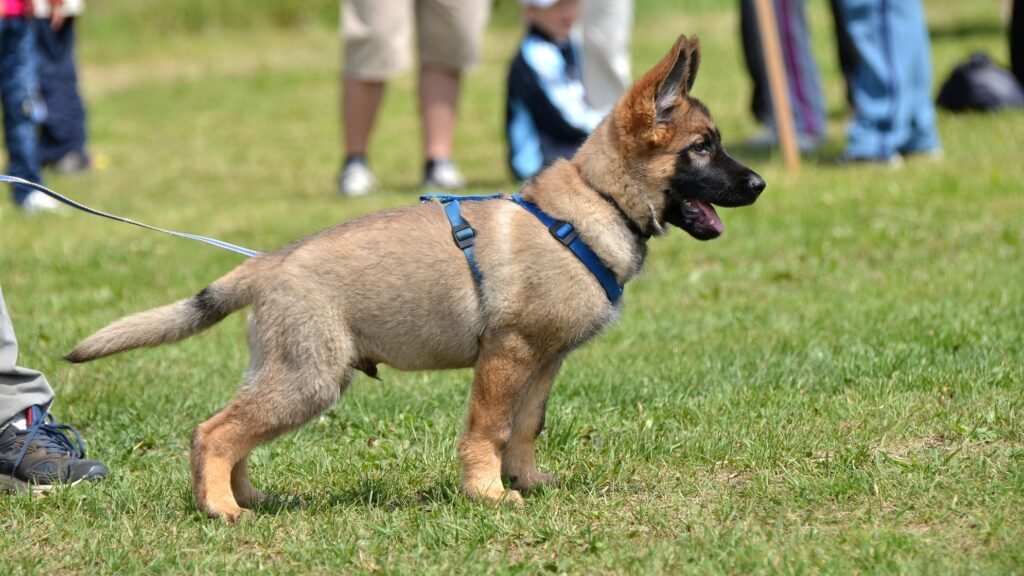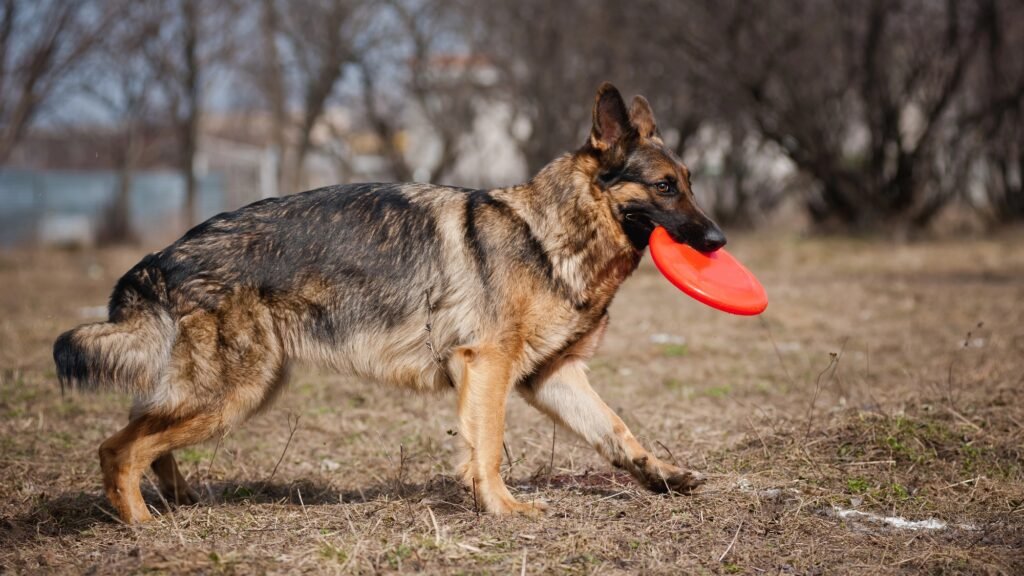Training a German Shepherd is about more than teaching commands—it’s about building a strong bond with one of the most intelligent and loyal dog breeds. Their energy and sharp minds make them highly trainable but also in need of proper guidance. Whether you’re starting with a puppy or training an adult, setting the right foundation will help you raise a confident, well-behaved, and happy companion. Here’s what you need to know to bring out the best in your German Shepherd.
1. Understanding the German Shepherd’s Unique Personality

German Shepherds aren’t your average dog—they’re a mix of brilliance and bravery. Known for their intelligence, loyalty, and protective instincts, these dogs are often used in police work, search-and-rescue missions, and as service animals. But don’t let their reputation intimidate you! These traits also make them wonderful family pets if properly trained. Just remember, they’re high-energy and thrive on mental stimulation.
2. Start Training Early—The Sooner, the Better!

The best time to start training your German Shepherd is as soon as they come home—usually around 8 weeks old. Early training and socialization are critical during this developmental stage. Introduce them to different environments, people, and other pets to build their confidence and reduce fear. Think of this as laying the foundation for a well-rounded adult dog. Focus on basic commands like “sit,” “stay,” and “come” early on, and always keep the sessions short and fun!
3. Consistency is Your Secret Weapon

Consistency isn’t just important—it’s everything. Use the same commands, gestures, and tone of voice every time. For example, if you want your dog to stop jumping, make sure every family member says “off” instead of using different words like “down” or “stop.” Consistent communication will prevent confusion and help your dog learn faster.
4. Positive Reinforcement is Key

German Shepherds are eager to please, which makes positive reinforcement a powerful training tool. Reward your dog with treats, verbal praise, or a favorite toy when they display the desired behavior. This encourages them to repeat the action and strengthens your bond. Harsh corrections or punishments should be avoided, as these can create fear or anxiety, potentially leading to behavioral issues. Instead, focus on rewarding good behavior to motivate your dog and make training enjoyable for both of you. Give them high-value treats (think small and delicious!), verbal praise like “Good boy/girl” and playtime as a reward for hard work.
5. Avoid These Common Training Mistakes

Training a German Shepherd can come with its challenges, and it’s easy to fall into common pitfalls. One frequent mistake is inconsistency, which can confuse your dog and slow their progress. Another is neglecting socialization, which is crucial for preventing fear-based aggression or reactivity. Overtraining is also something to watch out for; lengthy or overly intense sessions can lead to frustration or boredom. Lastly, many owners underestimate the importance of regular exercise. A bored or under-exercised German Shepherd can quickly develop destructive behaviors.
6. Mental and Physical Stimulation are Non-Negotiable

Training isn’t just about commands; it’s also about keeping your dog engaged and happy. German Shepherds are active and intelligent, so they need both physical and mental challenges. Long walks, agility training, and puzzle toys are great ways to keep their energy in check. Some things to consider are: Play hide-and-seek with their favorite toy. Teach them advanced tricks like “roll over” or “fetch.” Enroll in agility or obedience classes to burn off energy.
7. Make Socialization a Top Priority

A well-socialized German Shepherd is a confident and adaptable dog. Socialization should begin early and continue throughout their life. Expose your dog to different people, animals, and environments to help them feel comfortable in a variety of situations. This reduces the likelihood of fear or aggression and builds a well-rounded temperament. Puppy classes, controlled playdates, and visits to dog-friendly spaces are excellent ways to support this essential aspect of your dog’s development. Introduce new experiences gradually—don’t overwhelm them with too much, too soon!
8. Every German Shepherd is Unique

While German Shepherds share common traits, each dog is unique. Some may be quick learners, while others need a bit more patience. Adjust your training techniques based on your dog’s personality, energy level, and learning style. For example, some German Shepherds might excel in advanced tasks like herding or protection training, while others might shine as loving family companions.
9. Prioritize Regular Veterinary Care

Just like humans, German Shepherds require regular check-ups and preventative care to stay in peak health. Skipping routine vet visits can lead to undiagnosed health issues that might have been easily prevented or treated early. Dental health is often overlooked but is crucial for their overall well-being. Regularly checking and maintaining your dog’s teeth can prevent painful oral conditions and improve their quality of life.
10. Train in a Calm Environment

German Shepherds, especially puppies, are naturally curious and can easily lose focus in a busy environment. To set your dog up for success, choose a quiet, distraction-free area for training sessions. This will help your pup concentrate on learning commands and bonding with you, rather than getting sidetracked by toys, food, other animals, or kids. A calm environment ensures that your dog stays engaged and retains the lessons you’re teaching.
Conclusion

Training a German Shepherd is a journey that requires patience, consistency, and a deep understanding of their needs. By focusing on early training, positive reinforcement, and regular socialization, you can help your German Shepherd become a well-behaved and happy companion. Their loyalty and intelligence make them one of the most rewarding breeds to train, and with the right approach, you’ll build a strong, lifelong bond with your furry friend. If you’re struggling with certain behaviors, don’t hesitate to consult a professional dog trainer. It’s better to ask for help than let bad habits form.

Andrew Alpin from India is the Brand Manager of Doggo digest. Andrew is an experienced content specialist and social media manager with a passion for writing. His forte includes health and wellness, Travel, Animals, and Nature. A nature nomad, Andrew is obsessed with mountains and loves high-altitude trekking. He has been on several Himalayan treks in India including the Everest Base Camp in Nepal.






